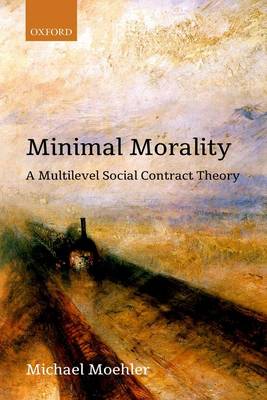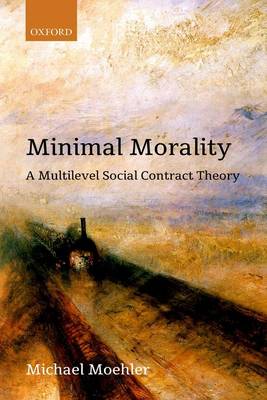
- Afhalen na 1 uur in een winkel met voorraad
- Gratis thuislevering in België vanaf € 30
- Ruim aanbod met 7 miljoen producten
- Afhalen na 1 uur in een winkel met voorraad
- Gratis thuislevering in België vanaf € 30
- Ruim aanbod met 7 miljoen producten
Zoeken
€ 169,45
+ 338 punten
Omschrijving
Michael Moehler develops a novel multilevel social contract theory. In contrast to existing theories in the liberal tradition, it does not merely assume a restricted form of reasonable moral pluralism, but is tailored to the conditions of deeply morally pluralistic societies which may be populated by liberal moral agents, nonliberal moral agents, and, according to the traditional understanding of morality, nonmoral agents alike. Moehler draws on the history of the social contract tradition, especially the work of Hobbes, Hume, Kant, Rawls, and Gauthier, as well as on the work of some of the critics of this tradition, such as Sen and Gaus. Moehler's two-level contractarian theory holds that morality in its best contractarian version for the conditions of deeply morally pluralistic societies entails Humean, Hobbesian, and Kantian moral features. The theory defines the minimal behavioral restrictions that are necessary to ensure, compared to violent conflict resolution, mutually beneficial peaceful long-term cooperation in deeply morally pluralistic societies. The theory minimizes the problem of compliance in morally diverse societies by maximally respecting the interests of all members of society. Despite its ideal nature, the theory is, in principle, applicable to the real world and, for the conditions described, most promising for securing mutually beneficial peaceful long-term cooperation in a world in which a fully just society, due to moral diversity, is unattainable. If Rawls' intention was to carry the traditional social contract argument to a higher level of abstraction, then the two-level contractarian theory brings it back down to earth.
Specificaties
Betrokkenen
- Auteur(s):
- Uitgeverij:
Inhoud
- Aantal bladzijden:
- 260
- Taal:
- Engels
Eigenschappen
- Productcode (EAN):
- 9780198785927
- Verschijningsdatum:
- 22/05/2018
- Uitvoering:
- Hardcover
- Formaat:
- Genaaid
- Afmetingen:
- 157 mm x 236 mm
- Gewicht:
- 566 g

Alleen bij Standaard Boekhandel
+ 338 punten op je klantenkaart van Standaard Boekhandel
Beoordelingen
We publiceren alleen reviews die voldoen aan de voorwaarden voor reviews. Bekijk onze voorwaarden voor reviews.











